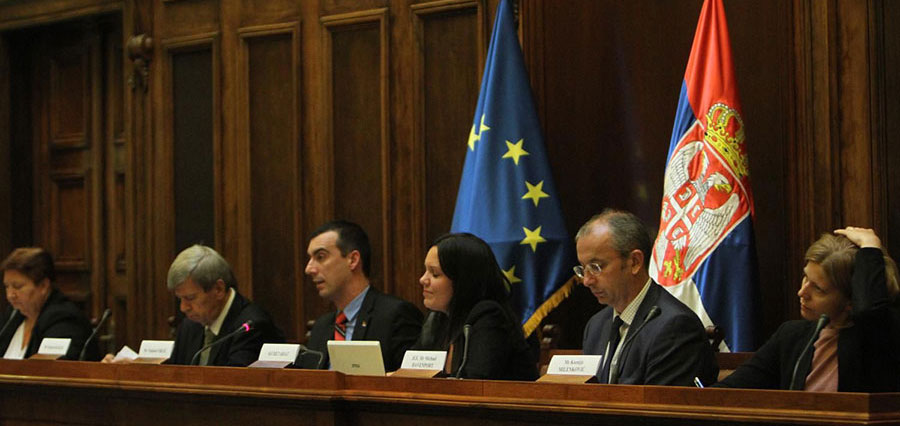As pointed out at the meeting of European Union-Serbia Stabilisation and Association Parliamentary Committee, the opening of negotiating chapters with Serbia sends a strong message about the EU’s commitment to pursuing the enlargement policy and in the coming period the focus will be on the implementation of assumed obligations, whereas Serbia is expected to open new chapters by the end of 2016.
Kukan: “Serbia can contribute to European security”
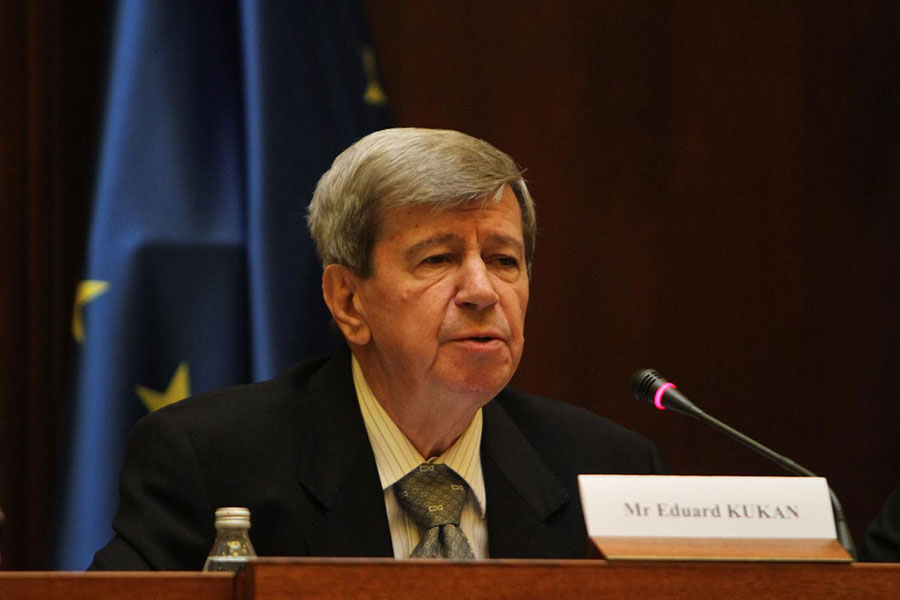
FoNet
Eduard Kukan, Chairman of the European Parliament delegation said Serbia started its EU negotiations at a time when the Union itself was faced with unprecedented challenges, adding that saying “yes” to Serbia means a stronger EU.
“Our citizens are already tired of globalisation and support those who wish to shut off our countries. Our borders are under pressure from refugees and other migrants and you can feel the effect of that pressure in Serbia, as well,“ Kukan said and added that terrorist threat posed yet another challenge.
“Our citizens want to see the demonstration of EU’s economic power, a Europe that would protect them and their rights. Europeans in the EU want to see new Member States and Serbia can undoubtedly contribute to our common European security,” Kukan said.
“Many in the West keep saying that new members would fail to enrich the EU, and we want to prove that they are not right and that the EU would only grow stronger with Serbia as its Member State,” Kukan said.
According to him, EU citizens must be convinced that the rule of law in Serbia is solid and would be well-incorporated in the EU’s overall security policy.
“We are extremely concerned, he added, about the low and lagging support for the EU,” Kukan said and added that Serbia should confront such opinions.
Davenport: “Serbia must step up efforts to implement reforms”
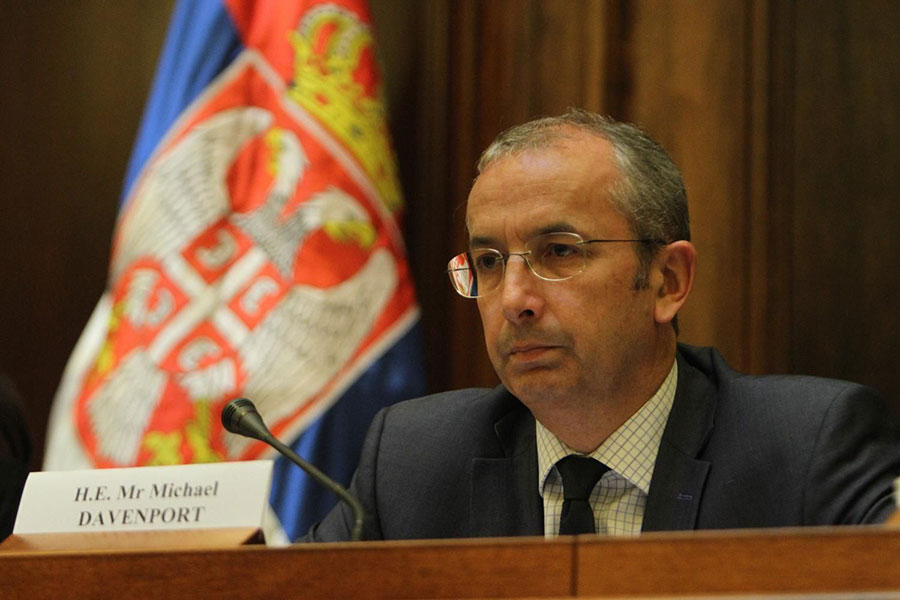
FoNet
Head of the EU Delegation to Serbia Michael Davenport said the Parliament’s role was of great importance when it comes to EU accession and monitoring the legislation process.
“Serbia’s strategic goal is to become an EU Member, as laid out in PM Aleksandar Vucic’s exposé, and Serbia is moving towards this goal,” Davenport said.
The European Commission appreciates the way Serbia dealt with refugee crisis,” Davenport said and added that EU institutions would continue to support Serbia.
“In order to continue the positive path,” he added, “Serbia must step up efforts to implement reforms, in the field of the rule of law, public administration reform, fundamental rights and development of market economy. The implementation will the mantra in the next phase of negotiation and will be closely monitored by the European institutions and Member States,” Davenport said.
“When it comes to independence, impartiality and efficiency of justice, fight again crime and corruption, cooperation with the Hague Tribunal and guaranteeing full freedom of speech and the media, it should be noted that these are not easy challenges and will take time and engagement to overcome, not only by Serbian Government, but also by each and every stakeholder in Serbian society” Davenport said.
He said major progress was made in normalisation of Belgrade-Pristina relations, adding that both sides were expected to actively engage in the implementation of agreements.
Ambassador Davenport announced that EU High Representative Federica Mogherini would inform the EU Council about the chapter 35 by the end of 2016.
Repčekova: “EU enlargement should be merit-based”
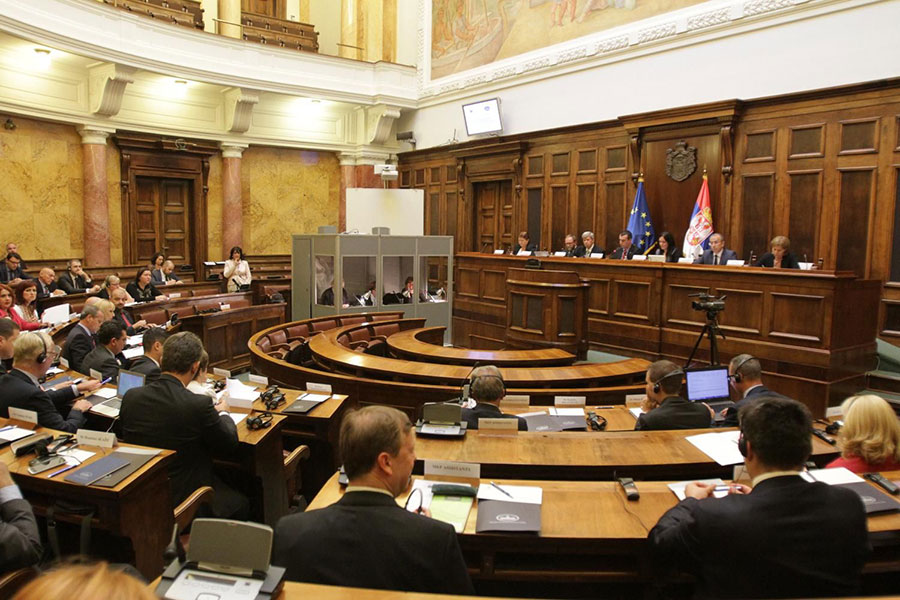
FoNet
Ambassador of Slovakia, the country presiding the EU, Dagmar Repčekova said there was no doubt the EU would support Serbia in attaining its strategic goal – i.e. EU membership.
“We truly believe that enlargement policy should be merit-based, which entails meeting the necessary conditions of peace, democracy, stability and reforms by candidate countries,” Repčekova said.
Speaking about the normalisation of relations with Kosovo under the chapter 35, Repčekova reminded that the EU Council called Serbia in December to fulfil its obligation and engage actively in the process.
“I would like to take this opportunity and reiterate this message and commend the progress made as regards the freedom of movement, urging both sides to advance in the field of telecommunications,” Repčekova said.
Orlić: “Serbia is a reliable and credible partner”
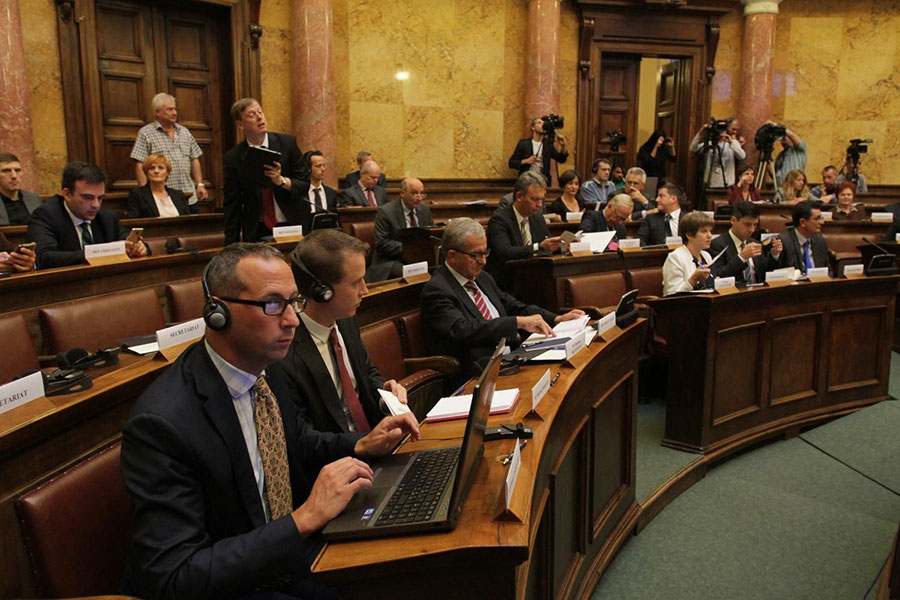
FoNet
Co-chair of the Serbian National Assembly delegation Vladimir Orlic thanked the EU institutions and Member States for their support on the EU path, adding that he strongly believed the EU could not be complete without the Western Balkans countries.
“No internal dilemma or challenge could jeopardise EU’s enlargement policy which guarantees peace and prosperity to the region,” Orlic said.
“We are trying to prove we are a reliable and credible partner and, even though we are not an EU Member, we are working together to address the migrant crisis and we take part in EU missions,” Orlic said.
Acting Director of the Government Office for European Integration Ksenija Milenkovic said Serbia had opened four negotiating chapters, adding that she was convinced it would technically speaking be ready to open a few more by the end of 2016.
Milenkovic said Serbia remained committed to the dialogue with Pristina as was clearly shown by the agreements on the freedom of movement and the Mitrovica bridge, adding that Pristina was expected to implement the Brussels agreement, especially regarding the establishment of the Community of Serb municipalities.
Declaration and recommendations are available on the link:
http://www.parlament.gov.rs/upload/documents/activities/DEKLARACIJA%205.%20POSP.pdf
http://www.parlament.gov.rs/upload/documents/activities/DECLARATION%205th%20SACP_final_EN.pdf

